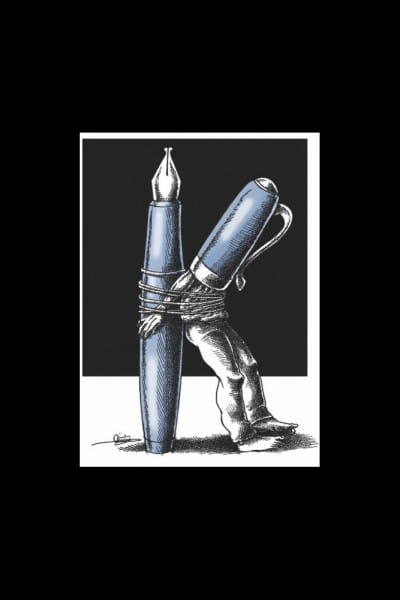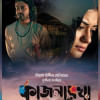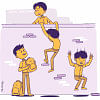Mistakes Versus Crimes: The Daily Star's Ordeal

It is only in the hyper-polarised political environment of Bangladesh that an article published eight years earlier, based on a feed from the Directorate General of Forces Intelligence (DGFI), printed by almost all the newspapers in the country, and the editor has already accepted that it was an error of judgement, can become a hot-button "issue" worthy even of discussion in the Parliament. There is a surreal quality to all this. Several points are relevant.
First, it was not an article based on some rumours or dubious internet sources or shadowy informants. It was certainly not published for specific benefits in terms of getting anything in return, nor a hatchet job on a perceived enemy. Obviously, a proper vetting procedure should have been followed, and would have been ideal. But, is it always possible to do so, or is it practiced by even the most reputed newspapers in the world (let alone in BD)? Consider the New York Times (the newspaper of record – one of the most authoritative and credible media sources today). It got its stories about nail salons in the US, early reports about Hillary Clinton's e-mails, and most egregiously, the news on weapons of mass destruction (WMD) in Iraq absolutely wrong. It tarnished the image of the paper and the editor, but nobody asked Judy Miller, who wrote most of the misleading pieces on Iraq's WMD capabilities, to return her Pulitzer, and nobody accused the NYT of sedition, or being unpatriotic, or committing a crime. Similarly, Dan Rather of CBS apologised when he realised that one of his sources for the story on President George Bush's military record, in terms of his service in Vietnam, was not particularly credible, and accepted his failure to follow appropriate journalistic procedures (particularly in cross-checking claims made by one source). BBC has an entire page devoted to clarifications and corrections. A mistake is neither unprecedented nor a cause for catastrophic consequences for the media platforms of the world.
Second, here was an editor accepting responsibility and actually owning up to a lapse in editorial judgement. How many people in Bangladesh have been known to do this? How many other editors who published exactly the same story have been held accountable and taken to task in this manner? Or is his admission that he had made a mistake itself the issue, and he would have been better off with bluff, bluster and evasiveness. What message does this send to the people of the country?
Moreover, this was ONE bad call in 25 years of journalism. Wouldn't one think that it is a rather impressive record? Also, this was a story on corruption in high places. Is that really a stunning and sordid secret that no one in Bangladesh had ever heard of before? This was not a false report on a politician's love-child, or an eminent person's Yaba addiction, or a leader's secret dealings with a foreign government. It was an issue that is widely, and incessantly, discussed. Didn't both leaders have multiple cases brought against them (some of which remain to this day)? There was, obviously, a woeful lack of journalistic rigour in publishing that piece, and the media allowed itself to be manipulated by the military, but the story was not tendentious in the context of the times, nor did it become the basis for any indictments, witch-hunts or irreversible damages.
Finally, why is the messenger being crucified but not the ones who originated the piece? Would the same politicians who are so muscular and shrill in their denunciations of the newspaper and the editor say similar things against the DGFI responsible for the story in the first place? Didn't most of the same officers remain in office, and some indeed prosper, after Prime Minister Sheikh Hasina eventually came to power? How moral or meaningful is it to invoke such fire and brimstone about The Daily Star for publishing a story, while completely ignoring the institution that pushed it?
There is no doubt that The Daily Star followed some professionally shabby procedures in publishing that particular story. Clearly, it had not done due diligence that the reporting deserved. It is understandable that some lawmakers should point out this irresponsibility. But, the clamour of condemnations that have followed this "revelation" of the editor's "mistake" made eight years earlier, and the full-throated call for blood, is so vehement, and so out-of-proportion, that it boggles the mind and raises various questions and concerns.
This is NOT about defending an individual who happens to be a friend, or a newspaper in which I have published previously. This is about protecting the right of journalists to function in an environment of safety and openness, where the possibility of making a mistake (which has been spontaneously and graciously acknowledged) is accepted and not criminalised, where people are not pilloried for political gain, and where democratic institutions are not threatened by the insecurities and impatience of a few.
But more importantly perhaps, this is an appeal for the return of sanity and civility to the political discourse in the country. The Daily Star is a popular and powerful newspaper, and Mr. Anam, an editor who has abundantly demonstrated his honour, integrity and patriotism. The effort to impugn him in this tone and language only stains the image of Bangladesh, and complicates our journey towards the ideals of democracy and development to which we are all committed. I certainly hope that our highly experienced and internationally respected Prime Minister would see fit to redirect the energies of her supporters in more constructive directions.
The writer is Professor Emeritus, Black Hills State University, USA. [email protected]

 For all latest news, follow The Daily Star's Google News channel.
For all latest news, follow The Daily Star's Google News channel. 








Comments